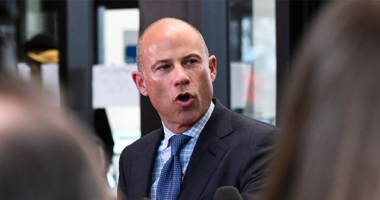Diet pop might no longer be the healthier option, after all.
A recent study revealed that individuals who consume sugar-free sodas on a regular basis have over twice the likelihood of developing type 2 diabetes compared to the general population.
Traditionally, sugary beverages such as soda and fruit juices have been associated with the onset of this disease. However, scientists are now cautioning against the potential risks posed by artificial sweeteners.
The study identified that individuals who regularly consumed beverages containing high levels of saccharin, a prevalent zero-calorie artificial sweetener present in products like Diet Coke and Diet Pepsi, faced the highest susceptibility to developing type 2 diabetes.
They believe saccharin may confuse the body. The brain may signal for insulin after detecting sweetness, but with no real sugar to process, insulin regulation gets disrupted over time, possibly leading to insulin resistance.
Based on their findings, study author Lyn Steffen, an epidemiology professor at the University of Minnesota, recommended ‘limiting the use of any sweetener’ and suggested choosing ‘unsweetened water, coffee, tea, milk or a small amount of 100 percent fruit juice’ for beverages.
The FDA approved the use of saccharin – 300 times sweeter than regular sugar – as a zero-calorie alternative in 1977.

A study suggests that those who regularly drink diet sodas have a more than double risk of having Type 2 diabetes compared to their counterparts
The researchers examined the diets of 4,654 adults between 1985 to 2015.
The participants’ average intake of artificial sweeteners, diet beverages, aspartame (a low-calorie artificial sweetener) and sucralose (a synthetic artificial sweetener) were measured in the first year, seventh year and year 20.
The study – published in the NUTRITION journal – did not include people who regularly or occasionally drink full sugar sodas.
Based on their results, the participants were divided into groups to determine their probability of developing type 2 diabetes.
During this 30-year period, 691 participants developed type 2 diabetes.
Results showed that the participants who consumed the most diet sodas in the 30 year period had a 129 percent greater chance of developing type 2 diabetes than those who barely drank any diet beverages.
Additionally, the researchers also found that those who drank sodas loaded with saccharin had a 110 percent increased risk of Type 2 diabetes.
Saccharin is usually used as artificial sweetener in fountain Diet Coca Cola, Diet Dr Pepper and Tab.
No link was found between type 2 diabetes and aspartame or sucralose.

Lyn M Steffen, an epidemiology professor at the University of Minnesota and study author
Most of researchers involved in the study are from the University of Minnesota, Vanderbilt University Medical Center, The University of Alabama at Birmingham and Northwestern University.
The observational study did not determine the reason why artificial sweeteners may lead to type 2 diabetes.
It also remains unclear how much of diet soda was being consumed by participants in each group.
Previous research has indicated that diet sodas are healthier alternatives to regular soda for diabetic patients as they cannot directly raise blood sugar levels since they have no regular sugar in them.
However, the researchers believe that consuming excessive diet sodas with artificial sweeteners that are overall much sweeter than real sugar may interfere with the body’s metabolism process and lead to excess sugar in the bloodstream.

But this is not the first time Saccharin has come under fire.
A 2019 Medicina study found that long-term saccharin consumption increases the risk of obesity, type 2 diabetes, liver and renal impairment in rats. It can also lead to the development of brain cancer in rats.
According to the American Heart Association, men should consume no more than 36 grams or 150 calories of sugar per day while women should consume no more than 25 grams or 100 calories of sugar per day.
However, an 8oz can of Sprite Zero contains 50 mg artificial sweeteners, Coke Zero contains 58 mg and Pepsi Max has 77 mg.
Along with this, Diet Pepsi and Caffeine-Free Diet Pepsi both contain 111 mg and 118 mg, respectively while Diet Dr Pepper has a shocking 123 mg of artificial sweeteners.
Both Diet Coke and Caffeine-Free Coke have 125 mg of artificial sweeteners too.
Excess sugar consumption can pave the way for weight gain, high blood pressure, heart disease and insulin resistance, which can cause Type 2 diabetes.
Type 2 diabetes is the most common form of the condition and over 37 million American adults suffer from this form of the chronic illness.
The CDC reports that over 100,000 Americans die of type 2 diabetes every year.
It is caused by either the pancreas not producing enough insulin – a hormone that regulates blood sugar levels – or the body’s cells not responding properly to insulin.
When you eat sugar, your body breaks it down into glucose, which the enters your bloodstream for energy absorption.
To regulate blood sugar levels, the pancreas releases insulin, which helps glucose enter your cells for energy.
But consuming excessive amounts of sugar can make the body resistant to insulin, meaning it can’t effectively use the insulin to lower blood sugar.
This leads to high blood sugar levels and a buildup of glucose in the bloodstream, which can damage the eyes, kidneys, nerves and heart.
While the chronic illness cannot be permanently treated, patients are advised to regulate their blood sugar levels through medication, healthy eating, physical activity and stress management.

















